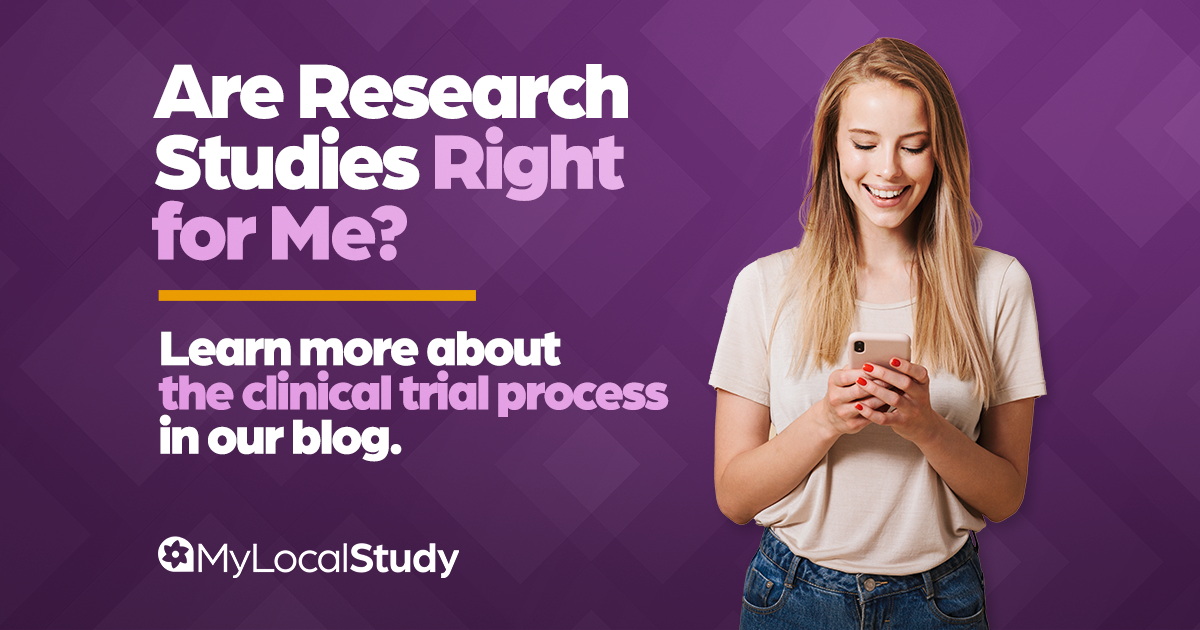The U.S. Food, Drug, and Cosmetic Act, established in 1938, helped set the standard for research studies today, shaping how medications and treatments are evaluated and released. Since then, clinical trials have expanded to offer groundbreaking opportunities for medical advancements. However, there are still some misconceptions surrounding research studies. We’re here to run through the volunteer process with you, clear up common myths, and help spread the truth about research studies. So that you can confidently answer the following question: Are research studies right for me?
Research Studies – You are NOT A Guinea Pig
The FDA and sites that conduct research studies always have your safety as the top priority. Before clinical trials begin, the FDA requires that investigational treatment be submitted for review. This includes all data from non-human testing, study guidelines, and information on why the new treatment is necessary. Once the FDA approves, then and only then can further research studies commence.
Although research has been completed and the FDA has given approval, there is no way to tell whether an investigational treatment is safe for the human body without additional research. Every human being’s body works and processes medications differently, so some risk is involved. Because of this, each clinical trial is reviewed in detail with each patient. This document discusses the purpose of the study, the volunteer requirements, any side effects experienced, the visit schedule, treatment information, and compensation, if applicable. After reviewing the information thoroughly, you will sign it if you wish to continue. Even if you sign and then have a change of heart, it’s important to note that the clinical trial process is entirely voluntary and can withdrawal at any time!

Studies Near Me – What Types of Volunteers Are Needed?
“There are research studies near me, but how do I know if I’m the right fit?” Two types of volunteers are needed for clinical studies: healthy volunteers and volunteers with a specific condition(s) being researched. Essentially, every race, sex, and gender are both welcome and needed.
- Healthy Volunteers– Help establish how the treatment interacts with a healthy body. Healthy volunteers help build the foundation of effectiveness, safety, dosing, and delivery methods.
- Volunteers with the Condition– If a clinical trial is investigating a new medication for a condition. Eventually, the trial will need volunteers with the condition to verify how well it works for treatment. For example, a type 1 diabetes study may need volunteers who are living with type 1 diabetes or have a potential risk of developing it.
Let’s Talk Benefits – Are There Paid Studies Near Me?
Participating in clinical trials offers numerous benefits, both personally and for the future of medicine. Research studies allow patients to be actively involved in their healthcare. Allowing them to make informed decisions about their options moving forward. Yet, it doesn’t end there; here are a few other benefits of participating in a clinical trial:
- Access to the Latest Treatments– As a participant, you may have access to cutting-edge treatments that are not yet available to the public. Which gives you a unique opportunity to receive the best possible care.
- Compensation– While not all trials provide compensation, some do offer reimbursement for transportation expenses, time off work, and other costs associated with participation. This compensation helps offset the financial burden of participating in the trial and recognizes participants’ essential contributions to medical research.
- Study-Related Care– Receive medical care by a team of healthcare professionals. For those without insurance, clinical trials are a great option to receive care at no cost.

How MyLocalStudy Can Help
Participating in clinical research can be a noble choice, but it’s a decision that should be taken seriously. Not only can it potentially benefit your own health, but it can also contribute to advancing medical options for others. MyLocalStudy provides users with a database of clinical trials enrolling across the country, eliminating the need to Google ‘research studies near me?’ With just the click of a button or a quick phone call, you can be on your way to participating in a study that could have a positive impact on countless lives. It’s an incredible feeling to know that you can be a part of something bigger than yourself, and MyLocalStudy makes it easier than ever before. Learn more about study details and apply directly from our website.
Resources:
https://accelresearchsites.com/why-do-clinical-trials-need-healthy-volunteers/ https://www.nia.nih.gov/health/infographics/clinical-research-right-me

